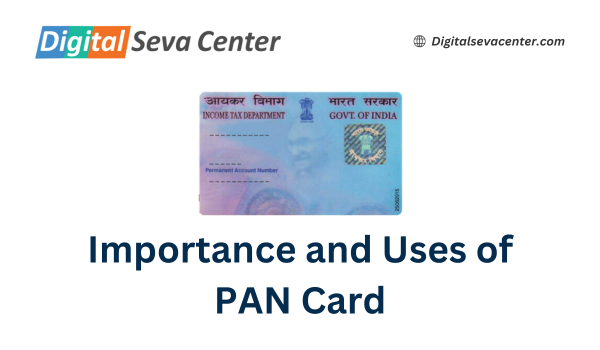PAN (Permanent Account Number) is a unique identifier issued by the Income Tax Department of India to an individual or entity. It is a 10-digit alphanumeric code, which serves as a universal identification for all financial transactions such as opening a bank account, applying for a credit card, or investing in mutual funds. The PAN card is an essential document for filing tax returns and paying taxes in India. The PAN Card is a laminated card that contains the cardholder’s PAN, name, date of birth, and photograph. It is valid for a lifetime and its main purpose is to prevent tax evasion by keeping track of monetary transactions.
The primary purpose of the PAN card is to prevent tax evasion by linking all financial transactions made by a particular individual or entity. This allows the Income Tax Department to maintain a detailed record of all major transactions for tax purposes. All individuals and entities eligible for Income tax are expected to file their IT returns, and a PAN card is necessary for this.
PAN card is essential for various financial transactions. Opening a bank account, applying for credit or debit cards, and investing in financial instruments like mutual funds or stocks often require the submission of PAN details. The card acts as a proof of identity and helps financial institutions verify the individual’s financial history and tax status. PAN works closely with the government, helping them track income and collect taxes. This allows them to spend money on important things like healthcare, education, and infrastructure, making life better for everyone.
For financial transactions, the PAN Card is generally mandatory. It is required to quote the PAN Card number while making purchases above a certain value, depositing or withdrawing money, and conducting other financial activities. It helps in the easy identification and tracking of financial transactions, ensuring that tax evasion is minimised. PAN isn’t just about money; he’s also your official ID superhero. Need a phone SIM card? Applying for a passport? Applying for a job? PAN comes to the rescue, proving you are who you say you are. He’s like a trusted friend, always ready to vouch for your identity.
If you wish to buy or sell a motor vehicle worth more than Rs.5,00,000, you must provide your PAN Card details when conducting the transaction. Similarly, if you are considering buying any sort of jewellery valued at over Rs.5,00,000, you will have to provide your PAN card details at the time of purchase. When it comes to tax payments, the PAN Card is essential. It is mandatory to quote the PAN Card number while paying taxes such as income tax, wealth tax, and capital gains tax.
The PAN Card serves as a link between the individual taxpayer and the Income Tax Department, ensuring that the correct amount of tax is paid and that all the transactions related to tax are accurately recorded. A PAN Card is also required for investing in securities such as shares, bonds, mutual funds, and derivatives in India. It helps the stock exchanges and depositories to monitor trading activities and prevent market manipulation and insider trading. It also helps the investors to claim tax benefits and deductions on the capital gains and losses.
Conclusion
As we all know, in essence, the PAN Card’s significance extends beyond identification, becoming a pivotal financial tool. Its utility in transactions, tax filings, and financial documentation is paramount. Accessible through digital seva platforms like Digital Seva Center, PAN Cards play a crucial role in modern financial landscapes. Embracing the digital era, these cards streamline processes, exemplifying the synergy between traditional identification and contemporary convenience.




